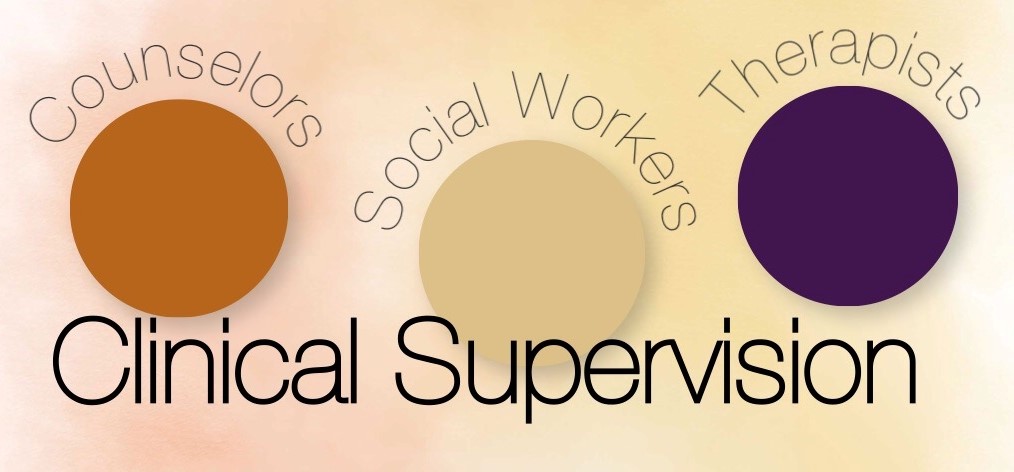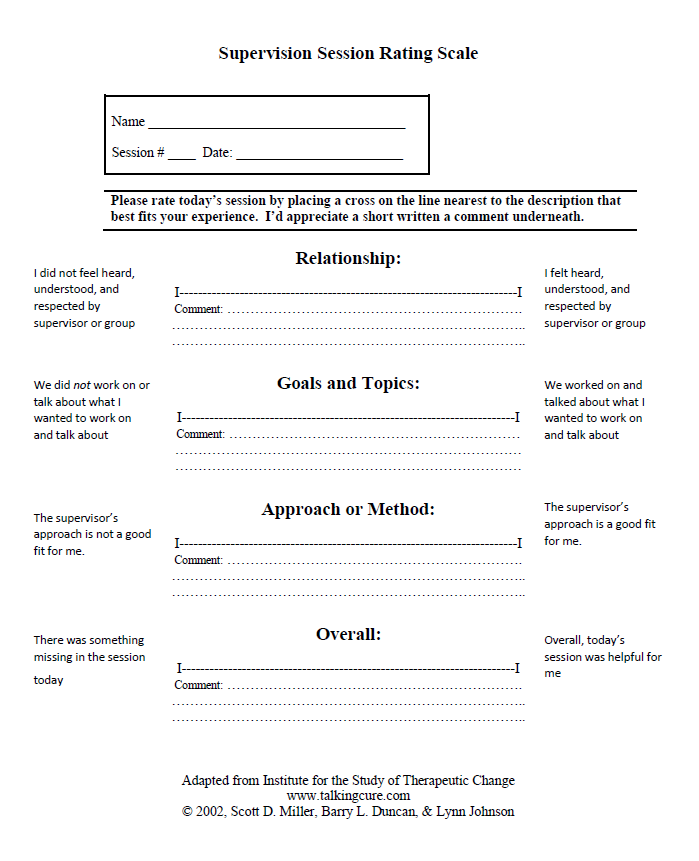 Clinical Supervision – Clinical Supervisor
Clinical Supervision – Clinical Supervisor
If you are looking for clinical supervision or a clinical supervisor, you’re in the right place. Supervision is also sought by managers and other professionals in various organisations to support them in their work.
The Psychotherapy and Counselling Federation of Australia (PACFA) recommends that you ask your prospective supervisor the following questions:
- Is your supervisor acceptable to the professional Member Association that you belong to or wish to join?
- Is your supervisor on the PACFA Supervision Register or another register of reputable standing in the state in which you practice?
- Does your supervisor have an appropriate qualification to supervise in addition to more than 5 years experience in counselling and/or psychotherapy?
One other question I recommend you also ask is: Does your supervisor use Feedback Informed Treatment (FIT) with their clients and supervisees or can they can guide you to where you can learn to use it?
Feel free to read my 2023 article Psychotherapy Redeemed on how to maximise your client outcomes.
Research shows that many supervisors are informed by the models of therapy they use in their own practice. As a result, they apply therapy theory to supervision. This may be a useful approach. Yet research also shows that using therapy theory as a sole lens for supervision leads to missing important information. In addition, it can lead to thinking about supervisees in therapeutic ways instead of guiding them in their professional development.
Coaches, counsellors, psychotherapists, managers and professionals seek me out for clinical supervision and professional supervision, either in person or via Zoom. I use Feedback Informed Supervision (2017) and Deliberate Practice (DP) to co-construct with you an eclectic/integrationist approach to meet your supervision as well as your professional development needs. In every session I seek your input about your supervision goals and get your feedback about your sense of how attuned I am to your supervision needs.
Supervision is not therapy nor just providing a reflective space
As you know, supervision is different from therapy. It is a forum used by supervisees to reflect on all aspects of your clinical & professional work, where you receive formal and informal feedback on that work and where the welfare of your clients and the quality of the service your clients receive is central.
But keep in mind that reflection is not enough (Chow, 2018). At the start of each supervision session I check with you to get a clear agreement about what you wish to focus on during that session. Then I get feedback from you at the end of each session to ensure that you’re getting what you’re seeking from our work together. See image below for the format I use.
As a supervisor I use different roles, styles and methods at different times, influenced by the focus of what you wish to work on at the time. For example, I pay attention to the processes that occur during a supervision session, within our supervision journey as a whole, in your therapy relationships and also on your professional learning goals.
Hawkins & Shohet (2012) coined the term the “good enough” supervisor. They suggest that your supervisor does not have to be perfect, or get everything right. They point out that the main role of a supervisor is to provide containment for you to effectively reflect on and improve your clinical & management work by working on your learning goals. The main purpose of a supervisor is to help you remain centred and focused on what your clients & stakeholders are wanting from you, so you can help them achieve their goals.
My approach to clinical supervision
Together we co-construct an approach to supervision based on your learning objectives and how you want to develop as a professional. I combine many methods, as detailed by Miller, Hubble & Chow (2020), to get goal consensus and direct feedback from you about our work together in supervision. This is the key behind helping you get real results for your clients at the same time as becoming a better therapist and professional.
As you can see, clinical supervision is both a relational and an educational process. Its two functions are 1) choosing appropriate ways for us to address your learning needs and goals and 2) coaching and deliberate practice to develop your skills. To do this, we generally focus on these main skill areas:
(a) the structure of your sessions and the interventions you use
(b) how you engender hope and expectancy in your clients/team, how you create a working alliance and focus the sessions by getting goal consensus, how you incorporate your client’s strengths, beliefs, values and social support networks into your work
(c) your use of self, your self-awareness, your awareness of personal issues & countertransference and your ability to adapt your style of counselling/management to meet your client’s needs.
Your unique approach to being a professional
Above all, my aim as a supervisor is to help you develop your own unique approaches in your clinical and professional work, so as to enhance the service you provide for your clients as well as developing yourself as a professional. This can be maximised if you to get direct feedback from your clients about:
- The outcomes they wish to achieve when working with you. You can track this manually or online via the Outcome Rating Scale. The ORS measures your client’s therapeutic progress while asking about their level of distress and functioning in their life.
- How they experience the working relationship with you. You can track this manually or online via the Session Rating Scale. The SRS measures the therapeutic alliance from your client’s perspective.
Getting your clients’ ongoing feedback about these two factors is vital for growing your expertise as a therapist. The research about this is explained by Bargmann (2017) in Achieving excellence through feedback-informed supervision. My greatest satisfaction comes from seeing you grow and change as a practitioner, based on the evidence from your therapy outcomes.
The principles which govern my supervision work are:
- To tailor supervision to you as an individual
- To set up clear contracts
- To operate from a coherent framework
- To ensure my supervision method matches the content of the supervision you seek
- To consider your developmental level, cognitive and learning style as a therapist/professional
- To assess your skills on an ongoing basis
- To evaluate your outcomes so you keep expanding into your growing edge
- To support you in appropriate and comprehensive self-care. See my self-care video for counsellors, therapists & other professionals.
Get in touch with me
For help in becoming a more confident and successful coach, counsellor, therapist or professional, call 0421 961 687 or email me to schedule an appointment. International callers should call +61 421 961 687.
You deserve a well-trained supervisor if you’re planning to invest time and money in your work. If you’re not ready to book an appointment, call me on 0421 961 687 to book a FREE 15 minute phone consultation to discuss how I may be able to assist you.
References:
Bargmann, S. (2017). Achieving excellence through feedback-informed supervision. In D. S. Prescott, C. L. Maeschalck, & S. D. Miller (Eds.), Feedback-informed treatment in clinical practice: Reaching for excellence (pp. 79–100). American Psychological Association. https://doi.org/10.1037/0000039-005
Baruch, V. (2023). Psychotherapy Redeemed. In Health Matters (pp.53–57) Skeptic Magazine, 28(4).
Carroll, M. and Gilbert, M. (2011). On Being a Supervisee : Creating Learning Partnerships. Kew: Psychoz Publications, Sept.
Chow, D. (2015). Frontiers of Psychotherapist Development. [online] Available at: https://darylchow.com/Daryl_Chow/Blog/wordpress/?s=feedback+in+supervision
Chow, D., Miller, S., Seidel, J., Kane, R., Thornton, J. and Andrews, W. (2015). The Role of Deliberate Practice in the Development of Highly Effective Psychotherapists. [online] Available at: https://scottdmiller.com/wp-content/uploads/2020/04/The-role-of-deliberate-practice-_Chow-Miller-et-al.-2015_.pdf
Chow, D. www.youtube.com. (n.d.). A System of Practice by Daryl Chow, Ph.D. 2018. [online] Available at: https://www.youtube.com/watch?v=vxmP03gAfps.
Crunk, A.E. and Barden, S.M. (2017). The Common Factors Discrimination Model: An Integrated Approach to Counselor Supervision. The Professional Counselor, 7(1), pp.62–75. doi:10.15241/aec.7.1.62.
Hawkins, P., Shohet, R., Ryde, J. and Wilmot, J. (2012). Supervision in the helping professions. Maidenhead: Mcgraw-Hill/Open University Press.
The Secrets of Supershrinks: Pathways to Clinical Excellence (n.d.). [online] Available at: https://scottdmiller.com/wp-content/uploads/2014/06/Supershrinks-Free-Report-1.pdf
Miller, S.D., Hubble, M.A. and Chow, D. (2020). Better Results: Using Deliberate Practice to Improve Therapeutic Effectiveness. 1st edition ed. [online] Amazon. American Psychological Association.
Stober, D.R. & Parry, C. (2005). Current Challenges and Future Directions in Coaching Research, in M. Cavanagh, A. M. Grant & T. Kemp (Eds) Evidence-Based Coaching (Vol. 1). Bowen Hills : Australian Academic Press, 13-19.
If you’re interested in asking about clinical supervision, please call me on (0421) 961 687 or email me.
For more information:
- Click here for my article Embracing Trauma Counselling in Supervision
- For information on group supervision, see Supervision Groups in Private Practice


